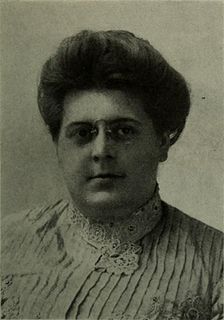A Quote by Jacques Roumain
The old men of the village of Mahotière say that the Mistress of the Water is a mulatto woman. At midnight she comes out of the spring and sings while combing her dripping long hair, which makes a sound sweeter than a violin. It is a song of perdition for whomever hears it. There is no sign of the Cross, no "Our Father" to save him. Her curse takes him like a fish in a net and the Mistress of the Water awaits him on the edge of the spring and smiles upon him and tells him to follow her to the depths, from which he will never return.
Quote Topics
Awaits
Cross
Curse
Depths
Dripping
Edge
Father
Fish
Follow
Hair
Hears
Her
Him
Like
Long
Long Hair
Makes
Men
Midnight
Mistress
Net
Never
Old
Old Men
Our
Our Father
Out
Perdition
Return
Save
Say
She
Sign
Sings
Smiles
Song
Sound
Spring
Sweeter
Takes
Tells
Than
Village
Violin
Water
Which
While
Will
Woman
Related Quotes
She is Melusina, the water goddess, and she is found in hidden springs and waterfalls in any forest in Christendom, even in those as far away as Greece. (...) A man may love her if he keeps her secret and lets her alone when she wants to bathe, and she may love him in return until he breaks his word, as men always do, and she sweeps him into the depths with her fishy tail, and turns his faithless blood to water. The tragedy of Melusina, whatever language tells it, whatever tune it sings, is that a man will always promise more than he can do to a woman he cannot understand.
And she loved a man who was made out of nothing. A few hours without him and right away she’d be missing him with her whole body, sitting in her office surrounded by polyethylene and concrete and thinking of him. And every time she’d boil water for coffee in her ground-floor office, she’d let the steam cover her face, imagining it was him stroking her cheeks, her eyelids and she’d wait for the day to be over, so she could go to her apartment building, climb the flight of stairs, turn the key in the door, and find him waiting for her, naked and still between the sheets of her empty bed.
Not infrequently, when a man asks a woman to marry him, he means that he wants her to help him love himself, and if, blinded by her own feeling, she takes him for her captain, her pleasure craft becomes a pirate ship, the colours change to a black flag with a sinister sign, and her inevitable destiny is the coral reef.
She saw him the first day on board, and then her heart sank into her shoes as she realized at last how much she wanted him. No matter what his past was, no matter what he had done. Which was not to say that she would ever let him know, but only that he moved her chemically more than anyone she had ever met, that all other men seemed pale beside him.
Every wife ought to answer for her man. If the husband be engaged in a seditious club, or drinks mysterious healths, or be frugal of his candles on a rejoicing night, let her look to him and keep him out of harm's way; or the world will be apt to say, she has a mind to be a widow before her time. She ought, in such cases, to exert the authority of the curtain lecture; and if she finds him of a rebellious disposition, to tame him, as they do birds of prey, by dinning him in the ears all night long.
She rested her head against his and felt, for the first time, what she would often feel with him: a self-affection. He made her like herself. With him, she was at ease; her skin felt as though it was her right size.. It seemed so natural, to talk to him about odd things. She had never done that before. The trust, so sudden and yet so complete, and the intimacy, frightened her.. But now she could think only of all the things she yet wanted to tell him, wanted to do with him.
While He [the Lord Jesus] was sitting alone by the well, 'There cometh a woman of Samaria to draw water' (John 4:7). As man, the Lord was thirsty, and saw that someone who was naturally thirsty was coming to quench her thirst. As God, however, He also saw that her heart was athirst for the water of salvation, although she did not know Him Who could give it to her. So He hastened to reveal Himself to her longing soul for, as it is written, He Himself longs for those who long for Him (cf. Ps. 9:10; Prov. 7:15).
She looked at him, and oh, the weariness to her, of the effort to understand another language, the weariness of hearing him, attending to him, making out who he was, as he stood there fair-bearded and alien, looking at her. She knew something of him, of his eyes. But she could not grasp him. She closed her eyes.
Neither loss of father, nor loss of mother, dear as she was to Mr Thornton, could have poisoned the remembrance of the weeks, the days, the hours, when a walk of two miles, every step of which was pleasant, as it brought him nearer and nearer to her, took him to her sweet presence - every step of which was rich, as each recurring moment that bore him away from her made him recal some fresh grace in her demeanour, or pleasant pungency in her character.
Rage flared up in Tessa and she considered belting Woolsey with the poker whether he came near her or not. He had moved awfully quickly while fighting Will, though, and she didn’t fancy her chances. “You don’t know James Carstairs. Don’t speak about him.” “Love him, do you?” Woolsey managed to make it sound unpleasant. “But you love Will, too.” Tessa froze. She had known that Magnus knew of Will’s affection for her, but the idea that what she felt for him in return was written across her face was too terrifying to contemplate.
Sometimes a woman's love of being loved gets the better of her conscience, and though she is agonized at the thought of treating a man cruelly, she encourages him to love her while she doesn't love him at all. Then, when she sees him suffering, her remorse sets in, and she does what she can to repair the wrong.
Or perhaps a widow found him and took him in: brought him an easy chair, changed his sweater every morning, shaved his face until the hair stopped growing, took him faithfully to bed with her every night, whispered sweet nothings into what was left of his ear, laughed with him over black coffee, cried with him over yellowing pictures, talked greenly about having kids of her own, began to miss him before she became sick, left him everything in her will, thought of only him as she died, always knew he was fiction but believed in him anyway.






































